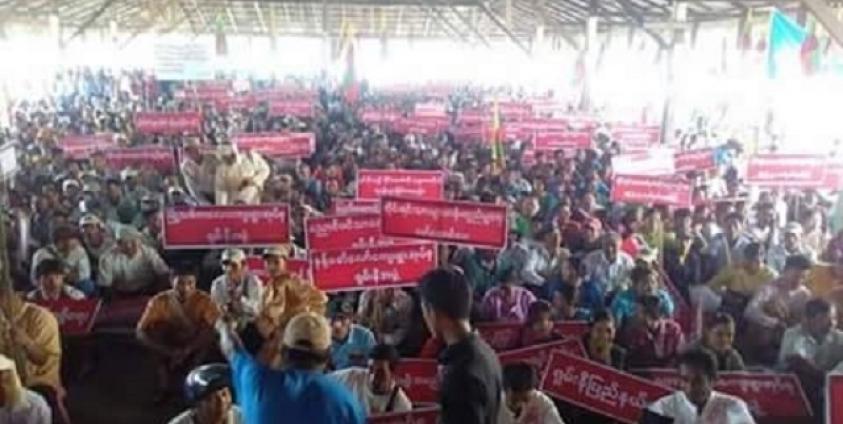Thousands of ethnic Red Shan people have marched to demand the creation of a new autonomous state.
According to Naing Naing Kyaw, the leader of the demonstration, marchers came to the town of Moenyin last Thursday from as far afield as northern Sagaing Division to join Kachin-based Red Shans in calling for their own self-administered state.
“Throughout history, this area was ruled by the Shan,” he said. “Therefore, we want to govern our own territory.
“In Kachin, the KIA [Kachin Independence Army] controls the region; in upper Sagaing, the Naga and Kuki ethnic groups control large areas. But the Shan people have been oppressed, particularly in Kachin State. We are gradually dying out,” Naing Naing Kyaw said. “That’s why we staged this rally.”
The protest leader added that this was the second time that Red Shan people had taken to the streets demanding self-rule. A previous demonstration took place last month in Homakling Township in Sagaing Division.
The Red Shan, also known as the Shan-ni in Burmese and Tai-leng in Shan language, was among a handful of ethnic groups that demanded their own self-administered region during the 21st Century Panglong Conference in Naypyidaw from August 31 to September 4.
The other militias that stood up to demand an ethnic state for their nationality are: the United Wa State Army (UWSA), arguably Burma’s strongest ethnic armed group; the Ta’ang [Palaung] National Liberation Army (TNLA); and the Pa-Oh. Meanwhile, the National Democratic Alliance Army (NDAA) based in Mong La demanded a self-administered zone for ethnic Akha people.
Currently, Burma recognizes self-administered zones within Shan State for the Danu, Kokang, Pa-Oh and Palaung ethnic groups; the Wa group has its self-administered division and a self-administered zone for the Naga in Sagaing Division.
In January, Shan Herald reported that the Red Shan had formed their own army to protect the minority’s interests and stand up for its claims of autonomy.
With a population estimated at 300,000, the Red Shan people have sizeable communities in upper Sagaing Division and Kachin State, particularly in Moenyin (known as Mong Yang in Shan), Moegaung, Myitkyina, Puta-O and Bhamaw.
By Shan Herald Agency for News (SHAN)







